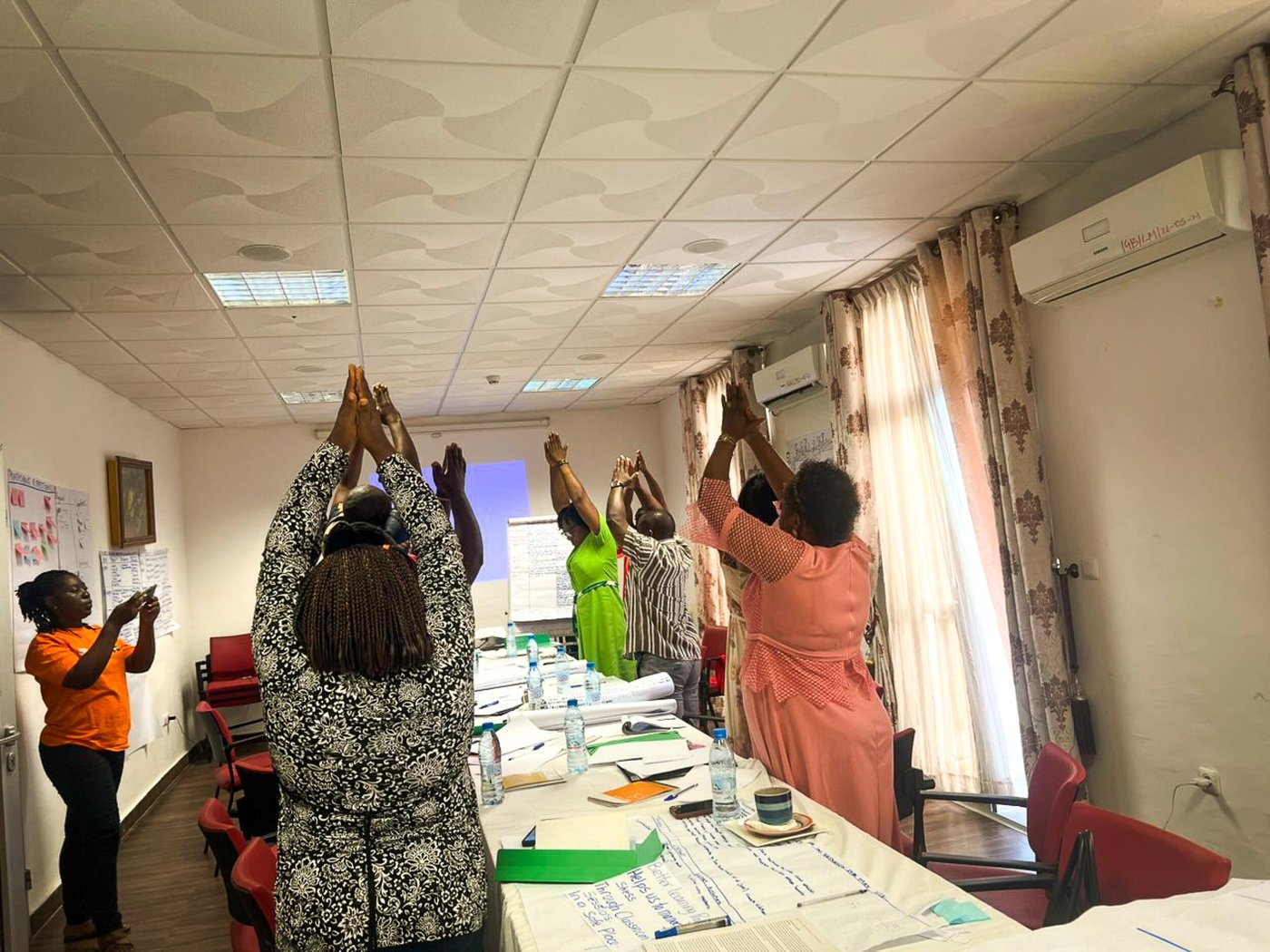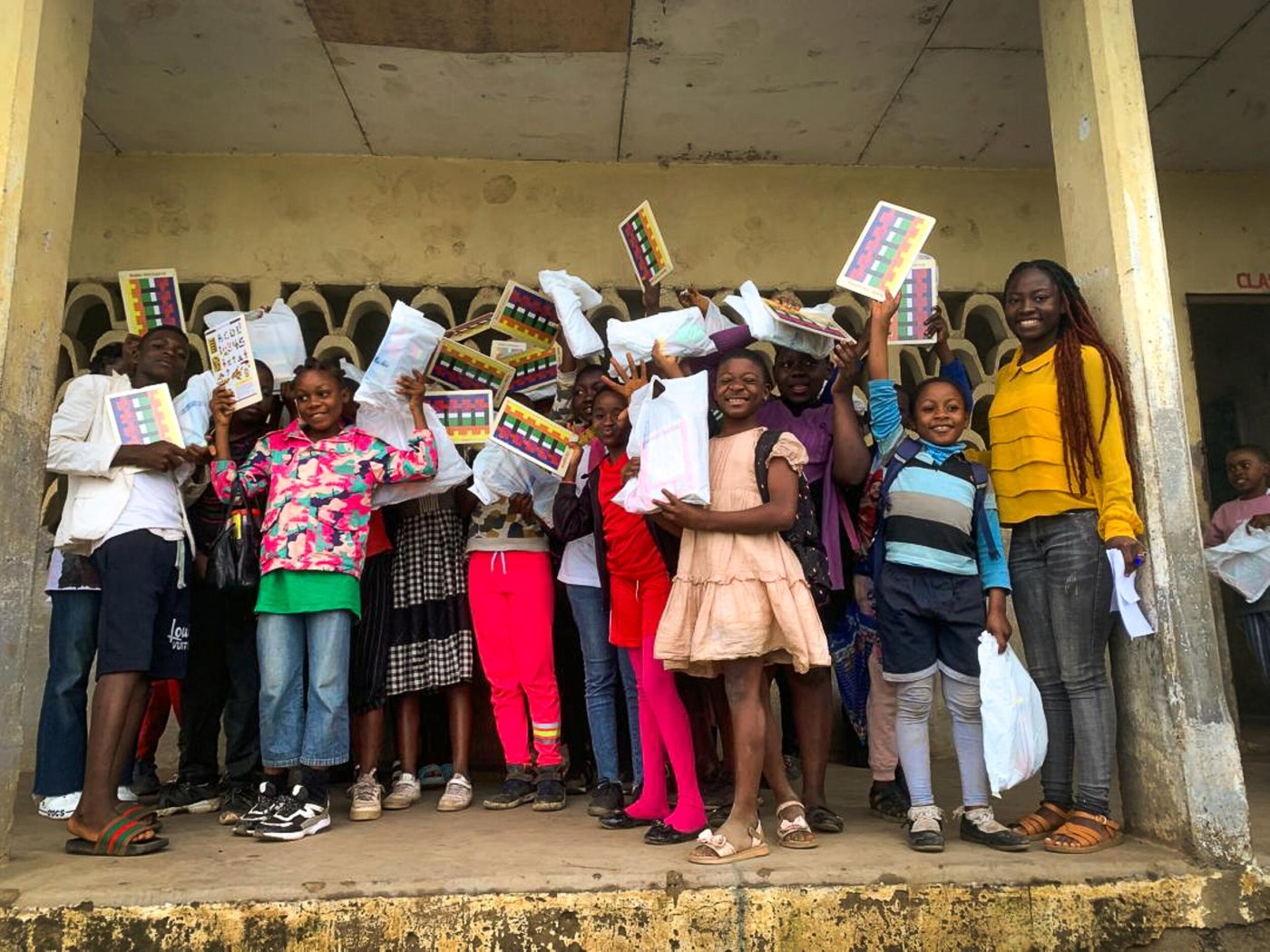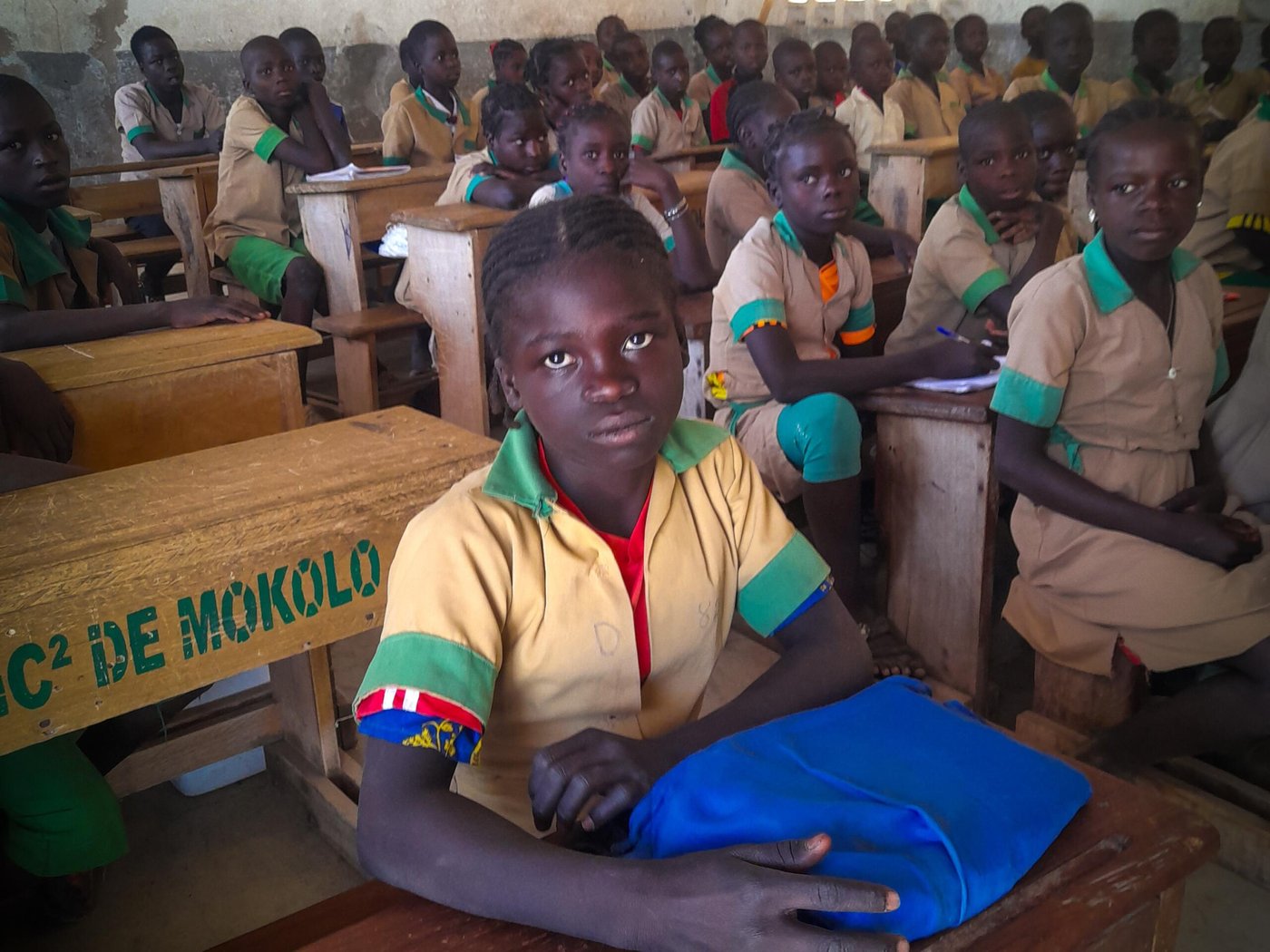In 2024, some 625,737 school-aged children, including 248,461 displaced children in the Far North region were out of school. Clashes between armed groups in the region have resulted in the destruction or closure of 119 schools, leaving thousands of children struggling to resume their education.
In the Northwest and Southwest regions, 41 per cent of schools and community learning spaces have been closed (6,970 facilities in total). This has exposed children and young people to protection risks such as child marriage, crime, violence, abuse, enrolment in armed groups and drug use. Education is now even more difficult to access for thousands of children, whose futures are already limited by challenges linked to cultural norms and beliefs.
Moreover, displaced children who have experienced conflict and violence often need help to recover. To address this, the Norwegian Refugee Council (NRC) has developed the Better Learning Programme (BLP), a special programme to help children deal with mental stress and trauma.
A life of trauma
Djamilia, 13, lives in Mayo-Sanganoué, about 6 km from Baïgaï in the Far North region of the country. She is the youngest of her siblings. Djamilia was forced to flee her village a few years ago when it was attacked by armed groups. She has unshakeable memories of that time.
“I was little, and I could hear people screaming and the sound of gunfire. I was so scared that every time I heard a noise, my heart would beat very fast. It was very hard for me to concentrate at school,” she recalls.
Sometimes she would start crying for no apparent reasonDjamilia's teacher
Even after she had escaped the violence, Djamilia had no interest in school. She felt a little sadder with each passing day, with no way of expressing herself or even understanding what she was feeling. This situation caused her to isolate herself from her classmates.
“She sometimes had a blank stare in the middle of class, as if she were lost. Sometimes she would start crying for no apparent reason,” her teacher relates.
Relieving stress through activities
In February 2024, the BLP was introduced in Djamilia’s school. The recreational activities have helped her to cope with the stress she used to experience.
“We play games, and we also do knitting and sports. We do a lot of breathing exercises and stretching. This has enabled me to make new friends and feel more part of the school community,” she says. Djamilia learned to use various coping strategies so that she can take control of her fears and find her way back to the energy she needs to be able to learn in school and function in everyday life.

NRC provided training to teachers in the Far North, Northwest and Southwest regions of Cameroon on how to implement the specially adapted learning programme. This greatly improved their knowledge of how to work with children affected by conflict and displacement-related trauma.
In the past, teachers used to punish children, especially those who were not active in class or were not able to participate. “It was difficult for us to provide a quality education for all these children because we weren't aware of what they were going through, and that they needed special support,” says Agnes, a teacher in Buea.
Students are calmer, more attentive and more motivatedAgnes, a teacher in Buea
The BLP helps both children and teachers to deal with trauma in areas affected by crisis. Psychosocial support training provided 91 teachers across the three regions with tools to understand how stress affects children. Now they are better equipped to help children recover from traumatic and stressful events.
“The training taught us concrete techniques to help pupils manage stress and focus on learning. For example, we integrated relaxation exercises and start-of-day routines to create a more serene school environment. These small changes have had a significant impact on the school climate: students are calmer, more attentive and more motivated,” explains Agnes.

Coping with fear
Djamilia’s story is not unusual. Children who are forced to flee their homes and who experience violence and conflict often struggle with high levels of anxiety and stress. Many have post-traumatic nightmares, sleep poorly at night and have a hard time concentrating at school.
Like Djamilia, some 4,637 children, including 1,140 girls, were able to retrieve a sense of calm and rebuild a sense of security through the BLP. The programme helps children regain the energy they need to learn and develop at school, despite the terrible things happening around them.

Aside from their home and family, school is the most important thing in children’s lives, especially for displaced children. It’s therefore important to have the materials that children need to be able to fully participate in class. In response to this need, NRC distributed 2,300 school kits containing books, pencils, pens, colouring materials, skipping ropes and balls among other things.
Education on pause?
Cameroon faces an array of challenges such as educational barriers, high poverty, inequality, political instability, and environmental degradation.
Due to the impact of the three humanitarian crises affecting the country, 1.4 million school-aged children needed humanitarian assistance with education in 2024. These needs are caused and exacerbated primarily by violence and insecurity. But they are also linked to structural challenges in the education sector, including inadequate infrastructure and resources, gender inequalities, and lack of access to civil documentation.
Furthermore, schools often have inadequate psychosocial support services and children are not referred to mental health or psychosocial support services for necessary care and treatment. The Better Learning Programme is a small but important step towards addressing these issues.
This project is funded by the Luxembourg Development Cooperation Agency.
Sign up to our newsletter to read more stories from around the world.


